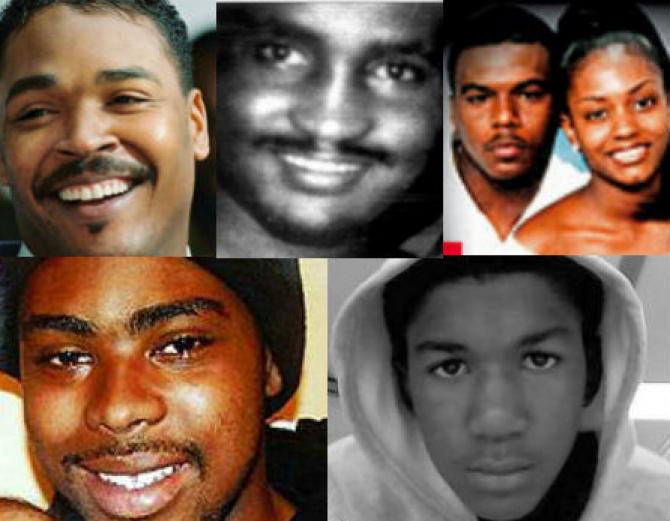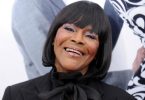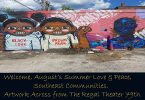We’ve Been Here Before: Charges Don’t Guarantee Conviction
Before we get carried away with a sense of justice delivered, let us remind ourselves of some high-profile cases in which criminal prosecutions did not deliver findings of guilt.

The relief in Baltimore was palpable after six police officers were charged Friday in the death of 25-year-old Freddie Gray. But the struggle for justice in the case has just begun. There are already calls for the prosecutor to recuse herself and defense attorneys will inevitably be throwing every conceivable obstacle in the path of prosecution. And what looks like a slam-dunk case to the public now can appear very differently to a jury months from now. We’ve seen it happen before.
We saw it happen with Rodney King. And Amadou Diallo. And Sean Bell. And Oscar Grant. And Trayvon Martin.
In each of those cases, charges were brought. And in each case, those who were charged got off or received relatively light sentences.
Rodney King
Long before cellphone videos made images of cops behaving badly routine, the March 1991 videoof King being beaten by Los Angeles police officers provided most of the United States with its first glimpse of the police brutality that regularly occurred in the black communities across the country.
George Holliday, who shot the video from a balcony across the street, took the video to a TV station in Los Angeles after the Los Angeles Police Department failed to respond to his telephone calls about the video.
As worldwide outrage grew, four officers were charged with assault with a deadly weapon and with using excessive force. Their subsequent acquittals in 1992 sparked riots that left 52 people dead, thousands injured and many millions of dollars in property damage, most of it in South Central Los Angeles.
Two of the officers were eventually convicted on federal civil rights charges and sentenced to 30 months in prison. King died of an accidental drowning in 2012. There were drugs and alcohol in his system.
Amadou Diallo
In February 1999, New York City police officers were looking for someone in connection with a rape when they spotted Diallo on the steps of his Bronx apartment building. The 22-year-old immigrant from Guinea, was reaching for his wallet when police fired 41 shots, hitting him 19 times.
The internal police investigation found that the officers had responded reasonably to a perceived threat, but a Bronx grand jury indicted the four officers on charges of second-degree murder and reckless endangerment.
The public furor over the case prompted a change of venue to Albany N.Y., where a jury deliberated for two days and acquitted the four officers of all charges. In April 2000, Diallo’s mother, Kadiatou, and his stepfather, Sankarella Diallo, filed a $61 million wrongful-death lawsuit against the city. They settled for $3 million.
Sean Bell
On the night before his wedding in November 2006, Bell and his friends held a bachelor’s party at a club in Queens, N.Y.. As he and his friends were leaving the club, they encountered five NYPD officers on an undercover stakeout investigating a prostitution ring.
One of Bell’s friends had gotten into a dispute outside the bar, and the police claimed they heard the friend say he was “going to get his gun.” The police confronted Bell, who jumped into his car and tried to drive away. The officers fired 50 bullets into the car. Bell was killed and his friends severely wounded.
The investigation centered on whether the police had properly identified themselves, ultimately leading to charges against the officers of first- and second-degree manslaughter, first- and second-degree assault and second-degree reckless endangerment.
Three officers were charged, tried and acquitted. In the aftermath, Nicole Paultre took Bell’s last name as her own and has been leading the fight against police brutality with a non-profit organization in remembrance of Bell.
Oscar Grant
Shortly after ringing in the new year in 2009, the 22-year-old Grant and several others were detained by Bay Area Rapid Transit police officers at the Fruitvale station in Oakland, Calif., after reports of a fight on a crowded train.
As seen in the horrifying video captured on the cellphones of several passengers, Grant was shot in the back while handcuffed by BART police officer Johannes Mehserle as another officer restrained Grant, who was lying on his stomach.
Mehserle claimed he was attempting to use his Taser on Grant and accidently grabbed his gun.
Alameda County prosecutors charged Mehserle with murder. Mehserle’s attorneys argued that he should be facing the lesser charge of manslaughter.
In January 2010, a jury convicted Mehserle of involuntary manslaughter. In November 2010, He was sentenced to two years and received credit for time served. He was released in June 2011.
Trayvon Martin
George Zimmerman was playing cop on the night he encountered 17-year-old Trayvon Martin in a Sanford, Fla., gated community in February 2012. Trayvon had gone to a local store for Skittles and iced tea and was heading back to his father’s house when an armed Zimmerman, a neighborhood watch volunteer, began tracking the teen’s movements, believing the youth might be a burglar. Even though the 911 operator whom Zimmerman spoke with told him to stop following Trayvon, he continued. The two got into a fight and Zimmerman shot and killed Trayvon.
We’ll never know Trayvon’s side of the story, but prosecutors charged Zimmerman with second-degree murder and argued that Zimmerman had ignored instructions to wait for police. Zimmerman, using Florida’s “Stand Your Ground” law as a defense, claimed he feared for his life and shot Trayvon in self-defense.
The jury acquitted him. Trayvon’s parents, Tracy Martin and Sybrina Fulton, have continued to speak out about what they see as the injustice of the case, and they have counseled and supported the families of other young men who have died in similar circumstances.








